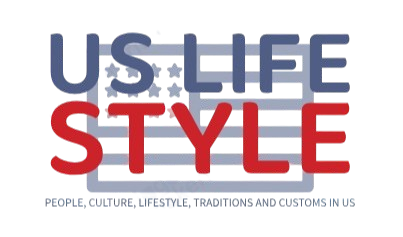If you’re considering starting a coating business, you’ve tapped into an industry full of potential. Coatings are essential across various sectors, including automotive, construction, manufacturing, and marine industries, where protective, aesthetic, and functional coatings serve critical roles. Whether it’s powder coating, paint coating, or specialized industrial coatings, starting a coating business can be both lucrative and rewarding. Here’s everything you need to know to set up your coating business for success.
What Is a Coating Business?
A coating business provides specialized services that apply protective, decorative, or functional layers to surfaces. These coatings can protect against corrosion, enhance aesthetics, improve durability, and even add additional properties like waterproofing or heat resistance. Coating applications range from industrial machinery to consumer goods, opening opportunities for specialization.
How Do You Decide on the Type of Coating Services to Offer?
Before diving in, deciding on the type of coatings you want to offer is crucial. There are numerous kinds of coatings, each with unique market demands:
- Powder Coating: Popular for its durability and eco-friendliness, powder coating is often used on metals, appliances, and automotive parts.
- Paint Coating: Paint coating, especially in automotive and industrial applications, adds color and protection.
- Specialized Industrial Coatings: These may include anti-corrosion, waterproof, or thermal-resistant coatings and are often used in construction, marine, and heavy machinery sectors.
Choosing a niche or specializing in a few services can set you apart in a competitive market and help you target specific clients effectively.
What Are the Essential Steps to Establishing a Coating Business?
- Market Research and Business Plan: Start by researching the demand for coating services in your area or online if you’re looking to serve remote clients. Identify your competitors, understand their strengths and weaknesses, and assess the gaps in the market. Develop a business plan that outlines your niche, target market, marketing strategy, and financial projections.
- Choose a Business Structure: Decide on a legal structure for your business (sole proprietorship, partnership, LLC, or corporation) based on your long-term goals and potential liability. Consulting with a legal expert is often helpful.
- Secure Financing: Starting a coating business requires equipment and materials that can be capital-intensive. Explore financing options, such as loans, investors, or small business grants, to fund the setup of your facility and initial supplies.
- Find a Location: The type of coating you choose will dictate your space needs. For example, powder coating requires a booth, curing oven, and possibly ventilation systems. Ensure your location meets local zoning laws, safety requirements, and offers room for equipment and storage.
- Purchase Equipment and Materials: Coating equipment includes spray guns, curing ovens, safety gear, and storage units. Research reliable suppliers to ensure you obtain high-quality equipment. Also, consider the environmental regulations for disposing of chemicals and hazardous materials.
- Set Up an Online Presence: Establish a website and consider showcasing your services on social media platforms. Potential clients are more likely to trust a business with a professional online presence.
How Do You Build a Skilled Team?
Skilled labor is essential for a successful coating business. Hire experienced coating technicians, especially if you’re offering specialized coatings that require specific knowledge and techniques. Investing in training for your team can also ensure quality standards and improve efficiency. Safety training is also crucial, as coating processes often involve chemicals and high-temperature machinery.
How Can You Market Your Coating Business?
- Local Networking: Build connections with local businesses in industries that require coating services, such as automotive repair shops, construction firms, and manufacturing companies.
- Digital Marketing: Utilize search engine optimization (SEO) on your website, as well as social media ads targeting industries in need of coating services. Create blog posts or videos demonstrating the benefits of your coatings to attract a broader audience.
- Trade Shows and Industry Events: Attend industry-related events to network with potential clients and showcase your capabilities. Bring samples of your work, photos, or even conduct live demonstrations.
- Customer Referral Programs: Offer discounts or incentives for customers who refer new clients. Word of mouth can be an effective marketing tool, especially if your clients trust your work quality.
What Are the Legal Requirements for Starting a Coating Business?
Legal requirements vary depending on the region, but some common aspects include:
- Business License: You’ll need a general business license and may also need specific permits for operating a coating business.
- Environmental Permits: Coating businesses often use chemicals that can be hazardous. You may need to comply with local and federal environmental regulations, such as the Clean Air Act in the United States, to ensure proper handling and disposal of waste.
- Health and Safety Compliance: Protect your employees by adhering to OSHA (Occupational Safety and Health Administration) or equivalent regulations in your country, particularly for handling equipment, ventilation, and hazardous materials.
- Insurance: Invest in liability insurance, property insurance, and worker’s compensation to protect your business, employees, and clients.
How Can You Ensure Quality and Safety in Your Coating Processes?
Quality and safety are top priorities in the coating industry. Here are some practices to implement:
- Regular Equipment Maintenance: Keep all machinery and tools in top working order to prevent defects or hazards.
- Use Quality Materials: The quality of the coating materials affects the durability and aesthetic of the final product, so invest in high-quality paints, powders, or chemicals.
- Employee Training: Continuous training ensures your team understands the latest industry standards and safety practices.
- Quality Control Checks: Implement quality checks at different stages of the coating process to ensure consistency.
What Are the Long-Term Success Strategies for a Coating Business?
- Expand Services: As your business grows, consider adding complementary services, such as metal fabrication or welding, to attract more clients.
- Stay Updated on Industry Trends: New coating technologies and eco-friendly materials emerge regularly. Keeping up-to-date with trends can help you adapt and stay competitive.
- Customer Feedback and Improvement: Regularly seek feedback from clients to understand what they value and identify areas for improvement. Adjust your services to meet client needs better and exceed expectations.
- Invest in Automation and Technology: Automation can improve efficiency and reduce costs in high-demand areas. Automated spraying systems, for instance, can significantly speed up production time.
Starting a coating business requires careful planning, a commitment to quality, and an understanding of industry demands. By following these steps, conducting thorough research, and maintaining a focus on quality and customer satisfaction, you’ll set a strong foundation for long-term success.








